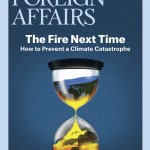Over the past few years, the United States’ approach to China has taken a hard-line turn, with the balance between cooperation and competition in the U.S.-Chinese relationship tilting sharply toward the latter. Most American policymakers and commentators consider this confrontational new strategy a response to China’s growing assertiveness, embodied especially in the controversial figure of Chinese President Xi Jinping. But ultimately, this
ongoing tension—particularly with the added pressures of the new coronavirus outbreak and an economic downturn—is likely to expose the brittleness and insecurity that lie beneath the surface of Xi’s, and Beijing’s, assertions of solidity and strength.
The United States has limited means of influencing China’s closed political system, but the diplomatic, economic, and military pressure that Washington can bring to bear on Beijing will put Xi and the Chinese Communist Party (ccp) he leads under enormous strain. Indeed, a prolonged period of strategic confrontation with the United States,
such as the one China is currently experiencing, will create conditions that are conducive to dramatic changes.
MINXIN PEI is Tom and Margot Pritzker ’72 Professor of Government at Claremont McKenna College. This article is part of a project of the Library of Congress’s John W. Kluge Center, supported by the Carnegie Corporation of New York.
This article appeared in the Foreign Affairs 2020 May/June edition. It is republished here with permission.
This article was originally published by Foreign Affairs. You can read the rest of the article here.
You can read exclusive content from Gateway House: Indian Council on Global Relations, here.
Copyright © 2020 by the Council on Foreign Relations, Inc.


